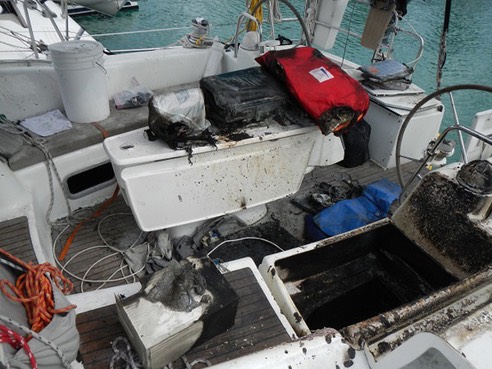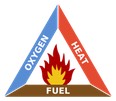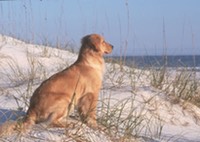Fire Aboard
The following report from latitude38.com serves as a good reminder of how fast an electrical (Class C) fire can start aboard—especially when Direct Current (e.g. 12v.) is being used to power appliances.

"Despite all the sensational stories of whale-caused sinkings, fire is and should be the greatest concern for cruisers," writes South Pacific cruiser Andrew Rosen of the Marina del Rey-based Beneteau 46 Murar’s Dream. "It can happen so quickly and so unexpectedly."
Having done the 2011 Baja Ha-Ha and the 2013 Pacific Puddle Jump, he was cruising in Fiji when a sudden fire on board threatened both the boat and his life.
"After docking at Vuda Point Marina between other boats in very close proximity (Med-mooring separated only by fenders), we settled into our new, temporary home as we planned the next leg of our journey to Australia via New Caledonia. That evening I turned on our air conditioning unit, which cools our aft cabin and operates via shore power (using a 220-110 step down transformer) or generator at 110 volts. It just did not sound right, so I quickly turned it off. Thinking nothing of it other than it would need to be checked out by the local electrician, I sat down at our navigation station and began to write one of our sailblogs.
"About 20-30 minutes later, I was interrupted by the smell of smoke and, upon entering the aft cabin, saw flames behind the air return vent coming out of the A/C unit. Fortunately, I was still awake and not sleeping, so I quickly grabbed one of our two, one-lb [sic] fire extinguishers and shouted, “Fire, fire, fire!” to get help from other cruisers. Within only a few minutes, the port side of our aft cockpit was in full flames and, with the aid of four other cruisers, seven fire extinguishers, and lots of water from two garden hoses (but only after turning off the electric power to the boat), it took us almost a half-hour to finally extinguish the flames.
"But for the fact that we were docked at a marina with access to water and additional fire-fighting equipment, I am sure that Murar’s Dream would have sunk...

Improperly sized wire, or loose or corroded electrical connections create electrical resistance; electrical resistance creates heat; and heat is one of the three required ingredients for fire.
It can happen fast! That is why EVERY electrical circuit and/or appliance MUST be protected with a healthy circuit breaker or fuse. NEVER wire an appliance into an electrical circuit without a fuse or breaker protecting the circuit. It's a good idea to periodically check all electrical connections, fuses, and circuit breakers for any sign of corrosion or problems. Abnormal heat buildup in electrical circuits or breaker panels can be detected with an inexpensive infrared thermometer.
And, don't forget to check your fire extinguishers.
-fl
